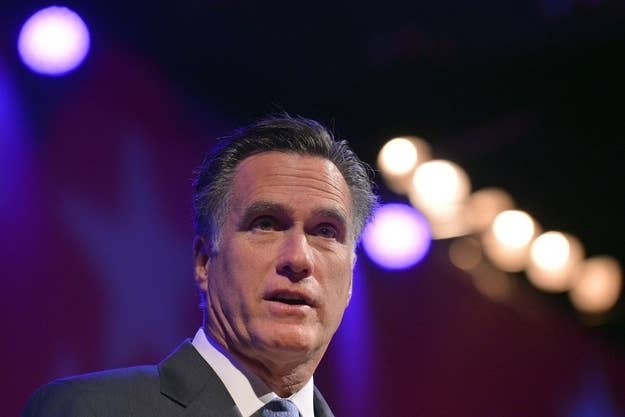
“I will honor the institution of marriage,” Mitt Romney told the crowd gathered at the Tampa Tribune Forum on Thursday night, August 30, to watch the former Massachusetts governor accept the Republican Party nomination for president.
That was it, though. Even Wisconsin Rep. Paul Ryan — who voted twice to amend the Constitution to bar states from allowing same-sex couples to marry — only skimmed over the topic, noting that his running mate is "a defender of marriage."
In a year dominated by the economy, the Romney/Ryan campaign shows no signs of running on what Romney's spokesman called his "consistent ... support for traditional marriage." Nor does President Obama, backed into supporting marriage equality earlier this year, show any sign of trumpeting that move — though Democrats' speeches in Charlotte will offer clearer signs of that.
There are clear differences on the issue, though. Romney has said he supports the proposed Federal Marriage Amendment for which his running mate voted and opposes President Obama’s decision to stop defending the Defense of Marriage Act in court — both positions reflected in the Republican Party platform approved in Tampa.
In addition to the differences between the two tickets, here are six reasons why the issue likely is going to keep coming up over the course of the next two months.
The Defense of Marriage Act
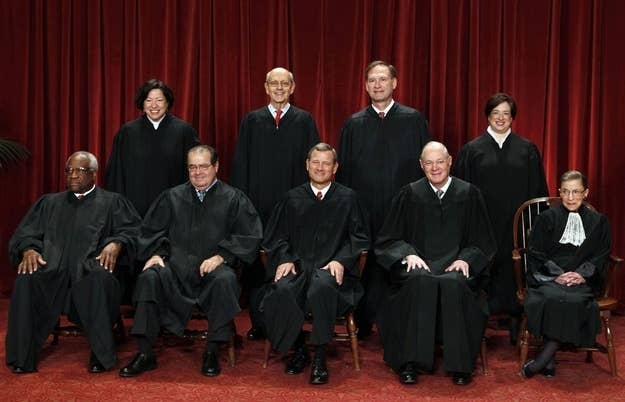
In the first weeks after the Supreme Court returns from its summer recess near the end of this month, it almost certainly will be accepting a case challenging the constitutionality of Section 3 of the Defense of Marriage Act, the law’s requirement that “marriage” and “spouse” only refer to marriages of one man and one woman under federal law.
The Obama administration has determined that the law is unconstitutional, and the Justice Department has stopped defending the law in court, arguing instead that the courts should strike down the law. The House Republican leadership has taken up the defense of the 1996 law, hiring one of President George W. Bush’s top lawyers, Paul Clement, to do so.
If the court takes at least one of the cases, then there will be a major case raising issues about the recognition of same-sex couples’ relationships, Congress’s power to do so and the role of the executive branch in enforcing laws passed by Congress front and center during the election season. Although the first brief will not likely need to be filed with the Supreme Court in the case or cases until after the election, the issue will be hard to hide from if, as expected, the court takes at least one of the cases.
California's Proposition 8
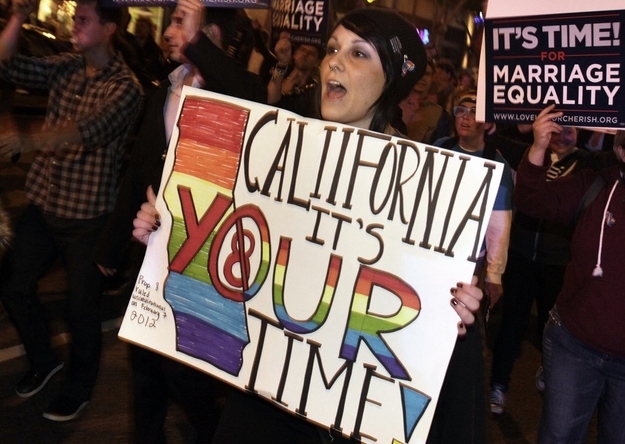
The Supreme Court also could decide to hear a case challenging the constitutionality of California’s marriage amendment, Proposition 8. The Ninth Circuit Court of Appeals held that the amendment violates the U.S. Constitution, and the proponents of the initiative are asking the Supreme Court to take the case and reverse that decision.
If the Supreme Court decides to take the case, the issue of whether it is constitutional for states to prohibit same-sex couples from marrying will be before the court — and the American people — just as the country begins the final month of this year’s campaigns.
If the Supreme Court doesn't take the case, the lower court ruling that strikes down Proposition 8 will stand and marriages between same-sex couples will resume in the state in earnest — a development certain to generate significant news that carries over into the presidential race.
Ballot Measures In Maine, Maryland, Minnesota And Washington
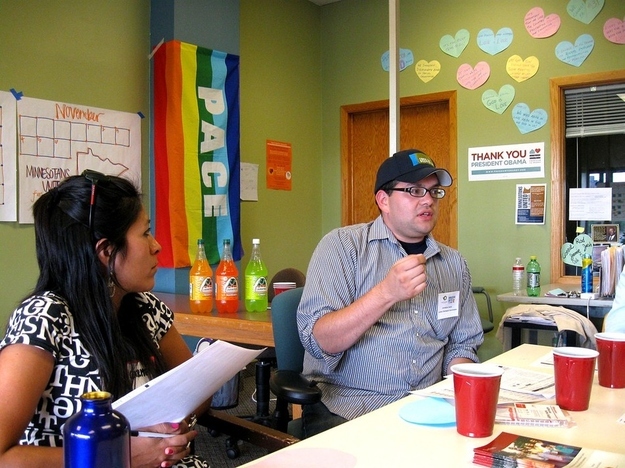
Voters in Minnesota will be deciding whether to amend their state’s constitution to prohibit same-sex couples from marrying, voters in Maine will be deciding whether to grant same-sex couples the ability to marry under state law, and voters in Maryland and Washington will be voting whether to accept or reverse state legislature-passed bills that would allow same-sex couples to marry.
Those pending votes are likely to be raised in candidates’ visits to the states, both by the media and by activists on either side of the issue. In the past, the White House and Obama campaign have been asked about their engagement on ballot measures relating to marriage — questions sure to be raised again in the coming months.
The Presidential and Vice-Presidential Debates
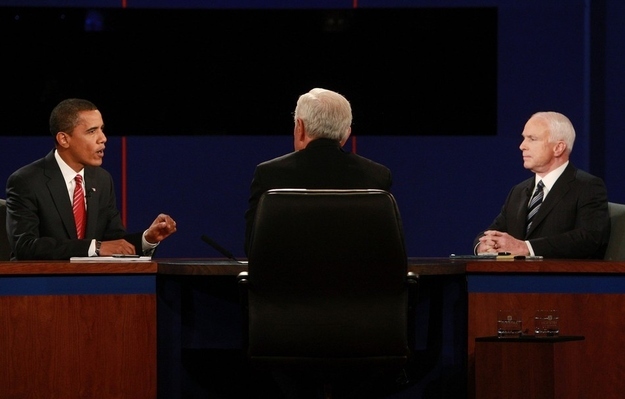
It is likely that the question of the candidates’ position on DOMA, Proposition 8 or same-sex couples’ marriage rights more generally is likely to come up at in one of the three presidential debates between Obama and Romney and/or the vice presidential debate between Vice President Joe Biden and Wisconsin Rep. Paul Ryan.
Depending on the question or questions asked and the answers given, this could be a throw-away moment quickly forgotten or a notable moment that stirs up one or both sides' bases — and potentially wins over or alienates independents.
The Growing Number of Places Where Same-Sex Couples Can Marry
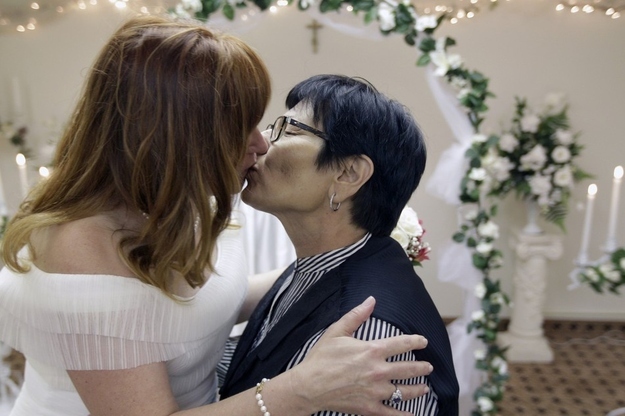
Both New York City and D.C., two of the leading media centers for presidential news coverage, have marriage equality. Neither did in 2008. The growing number of places with marriage equality — including Massachusetts, Connecticut, Iowa, Vermont, New Hampshire, D.C. and New York — changes the coverage and conversations about the issue as more people know married same-sex couples.
Rep. Tammy Baldwin's Senate Run
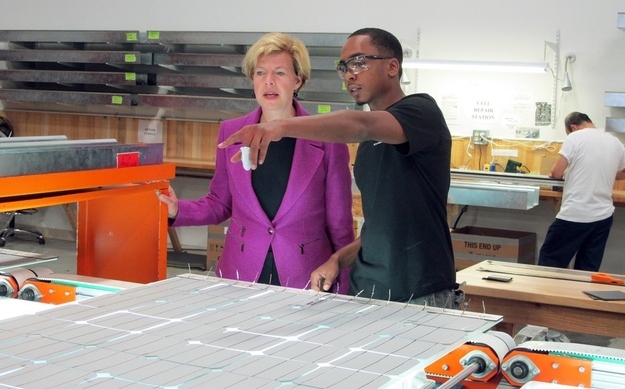
Wisconsin Rep. Tammy Baldwin, running against former Wisconsin Gov. Tommy Thompson, would be the first out LGBT member of the U.S. Senate should she win this November. A reporter for an LGBT newspaper already has asked White House press secretary Jay Carney in the White House press briefing if Obama would be campaigning with Baldwin.
